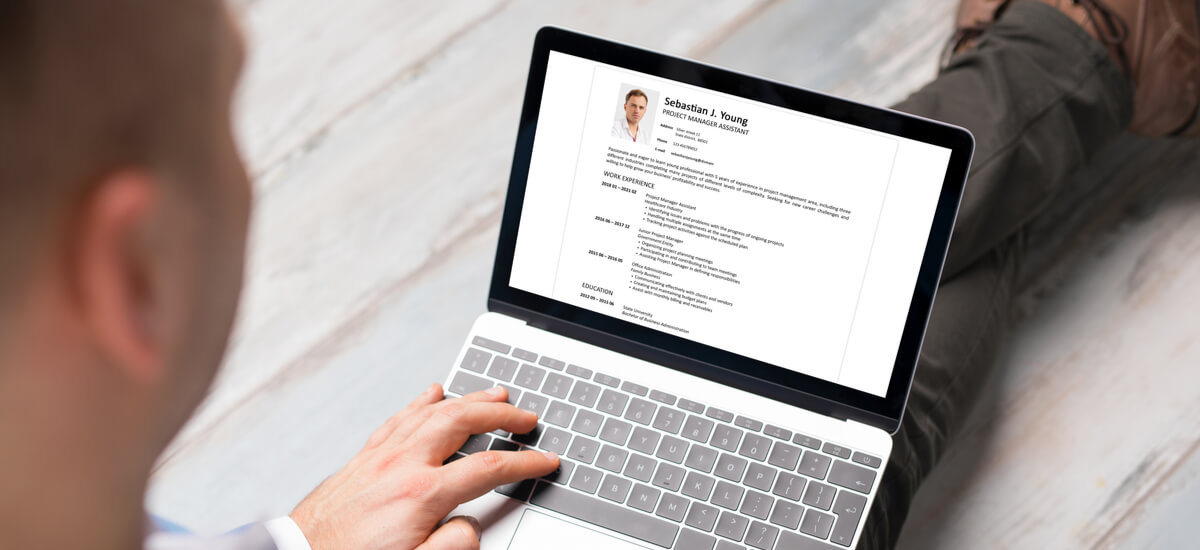Is there an ISA for non UK citizens living in the UK?
Everything you need to know about ISAs for non-UK citizens in a handy guide, including eligibility and how to open one.

Looking for a job in Dubai? After a couple of turbulent years, the job market is becoming as vibrant as before the pandemic.
According to LinkedIn’s 2020 Emerging Jobs Report in the UAE report, Dubai’s job market is also getting diverse – meaning that industries such as security and investigation, marketing and advertising, and hospitality are also seeking more employees and are ready to fill the gap by hiring from abroad¹.
However, the top positions are still dominated by the tech industry with positions like Data scientist, Full stack engineer, and Customer success specialist¹. So, if you’re looking to get a job in Dubai’s tech industry, you’re in luck.
But, where should you start in Dubai’s budding job market? This guide will run you through the most important steps and information, including visas, sponsorship, where to look for jobs and interview tips.
Banks and money transfer providers often give you a bad exchange rate to make extra profits.
Wise is different. Its smart new technology skips hefty international transfer fees by connecting local bank accounts all around the world. Which means you can save on currency exchange rates by using Wise rather than your bank when you send your money abroad.
Use the Wise account to hold and convert money in 40+ currencies. And, get the Wise card before travelling to the UAE to pay for your expenses in local currency.
Try Wise and spend in Dubai like a local.
If you’re planning to work in Dubai, you’ll need a work visa. The good news is, if you’re employed by a Dubai company, they’re pretty easy to obtain.
Because a work visa is required, it’s easiest to head to Dubai after you’ve been offered a position. That being said, it’s possible to enter the emirate on a visitor or tourist visa for your job search and then transfer your visa status once you’ve found employment.
Most visitors to Dubai aren’t required to obtain a visa ahead of time; one will be issued to you upon arrival². Apart from a 180-day visit eligibility for Mexican passport holders², there are the 90-day and 30-day options available.
Jobseekers from the following countries are allowed to remain in the UAE for 90 days² after their arrival before leaving the country or applying for a work visa:
| Countries | ||
|---|---|---|
| Argentina | Austria | Bahamas Islands |
| Barbados | Belgium | Brazil |
| Bulgaria | Chile | Colombia |
| Costa Rica | Croatia | Cyprus |
| Czech Republic | Denmark | El Salvador |
| Estonia | Finland | France |
| Germany | Greece | Honduras |
| Hungary | Iceland | Italy |
| Kiribati | Latvia | Liechtenstein |
| Lithuania | Luxembourg | Maldives |
| Malta | Montenegro | Nauru |
| Netherlands | Norway | Paraguay |
| Peru | Poland | Portugal |
| Romania | Russian Federation | Saint Vincent and the Grenadines |
| San Marino | Serbia | Seychelles |
| Slovakia | Slovenia | Solomon Islands |
| South Korea | Spain | Sweden |
| Switzerland | Uruguay |
Citizens from the following countries also don’t need to get visas in advance, however visas issued on arrival will only be good for 30 days².
| Countries | ||
|---|---|---|
| Andorra | Australia | Brunei |
| Canada | China | Hong Kong, China |
| Japan | Kazakhstan | Macau, China |
| Malaysia | Mauritius | Monaco |
| New Zealand | Republic of Ireland | San Marino |
| Singapore | Ukraine | United Kingdom and Northern Ireland |
| United States of America | Vatican City |
While these tourist visas are a good way to enter the country in order to perform your job search, it’s critical that you either get a work visa, provided you find employment, or leave the country when your visa expires. There’s a 10-day grace period³ after visa expiration, but if you’re caught working on a tourist visa, you can be jailed or fined and deported⁴.
The good news is, once you find a job, the visa process is largely out of our hands. Outside of having to provide your employer with some documents, like your passport number, they’ll take care of the entire sponsorship and visa process for you. The not so great news is, your job isn’t entirely done.
While your work visa is being processed, you’ll need to submit your medical records, passport copies, photo, job offer letter and visa application to the Department of Health and Medical Services.
You’ll also have to get a blood test to rule out diseases like HIV and tuberculosis⁴. At the moment, the UAE doesn’t allow foreign carriers of those diseases to reside in the emirates. Once you pass all the tests, you’ll be issued a health card, which is mandatory for foreign workers in Dubai⁴.
You’ll also need a work permit which involves sending your passport photo, employment contract, entry visa, medical records and your employer’s labour licence to the Ministry of Human Resources⁵.
Finally, you’ll need a residency visa, which is issued by Dubai’s General Directorate of Residency and Foreigners Affairs⁶. You can apply for it online or go to the AMER centre in person. You need to fill out a form, provide your passport, medical records, health certificate, original entry permit, passport photos, a copy of your work permit, and the receipt from your work permit processing.
And that’s it! With your work visa, health card, work permit, and residence visa in hand, you’re all set to legally start working in Dubai.
While the emirate’s overall financial health becoming stable, not all job markets are ready to bounce back. Some markets where job-seekers might find success include⁷:
Many of the above sectors are performing so well that salaries are expected to continue to rise. LinkedIn’s Jobs on the Rise 2022 report goes into further detail, noting that job-seekers looking to take on the following roles within those sectors have the best chances of finding employment in Dubai⁸:
There are some companies that are well known in Dubai for their rigorous hiring and excellent standing as places to work.
According to LinkedIn’s Top Companies 2021 report, some of the best businesses to work at are the retail chains Landmark Group, Majid Al Futtaim, accounting firm PwC, investment management companies Mubadala, ADIA, and management consulting firm Deloitte, among others⁹.
The single most important tool in your job search is your CV.
Dubai’s job market is extremely competitive, and on average, a recruiter will only spend six seconds checking out your resume. It’s essential to avoid major CV pitfalls, like using buzzwords. Monster offers a great resource for CV tips and advice for those looking for a little more help.

Craft your online persona. Your online presence can influence your success when looking for a job. On top of cleaning out potentially harmful posts and images, you should also boost your online activity by creating a resume, filling out jobseeker profiles on websites like LinkedIn and Bayt. However, showing a bit of character by posting about your hobbies or your family could also be beneficial.
Don’t apply for jobs you’re not qualified for. Just because you’re excited about a company doesn’t mean you should apply for jobs that aren’t a good fit for your skills. Hiring managers may see scattered applications as a sign of a candidate who doesn’t know what they want and lacks direction.
To get a better idea of which companies are hiring in Dubai, start looking at some online job sites and which positions they offer.
Some good sites for finding jobs and internships include:
Here are some great sites that are specific to finding internships:
Many Dubai businesses hire through headhunters. Working with an agency is very common, and is still the best way to procure a job within the emirate. Here are a few agencies you can check out:
If you decide to work through an agency, look for companies that take commission on the employer’s end, not yours. Be wary of recruiters that collect high fees from job-seekers: these tend to be scams.
Dubai’s companies are also seeking for employee-referenced candidates, with many companies having a referral program in place within their HR department. For that reason, networking is a powerful tool you can use to look for and land a job.
In fact, Jobvite’s Job Seeker Nation report reveals that in the US, close to half of the people surveyed heard about an opening through word-of-mouth, and 37% get the information about a vacancy through their professional networks¹⁰. There’s a great chance that similar statistics apply for the UAE job market as well. Thus, making personal connections is a vital part in your job search.
If you can’t get to Dubai for networking events, you can still network. Not only are there plenty of online communities and social media networks, you can also find specific “online job fairs” to help with the “who-you-know.”
Be patient. It takes time to find a job anywhere in the world, but Dubai’s job market is particularly competitive. On top of the talent saturation, hiring in Dubai tends to be seasonal, meaning most recruitment takes place from January to March and almost completely stalls during the holy month of Ramadan and the hottest months of the summer. It’s not uncommon for your job search to take six months to a year – so hang in there!
Good luck!
Sources used for this article:
Sources checked on 25-05-2022.
*Please see terms of use and product availability for your region or visit Wise fees and pricing for the most up to date pricing and fee information.
This publication is provided for general information purposes and does not constitute legal, tax or other professional advice from Wise Payments Limited or its subsidiaries and its affiliates, and it is not intended as a substitute for obtaining advice from a financial advisor or any other professional.
We make no representations, warranties or guarantees, whether expressed or implied, that the content in the publication is accurate, complete or up to date.

Everything you need to know about ISAs for non-UK citizens in a handy guide, including eligibility and how to open one.

What is the best account for inheritance in the UK? Find out in our handy guide where we compare interest rates, features and benefits of popular accounts.

Read our guide to receiving inheritance from Canada as a UK resident, covering everything you need to know.

Read our guide to receiving inheritance from the USA as a UK resident, covering everything you need to know.

Discover what citizenship by descent means in the UK and see if you are eligible to become a UK citizen via your parents or grandparents in our guide.

Thinking of applying for a UK passport? Read our guide on the UK citizenship by investment, including the requirements, costs and benefits.